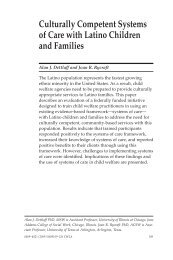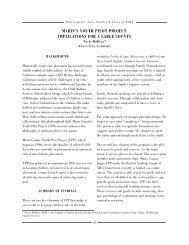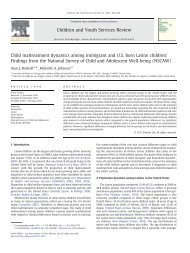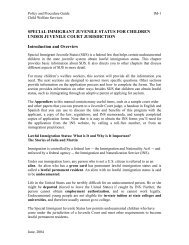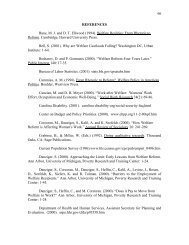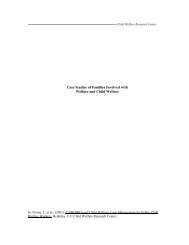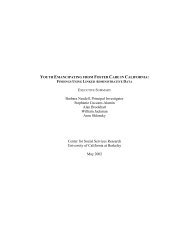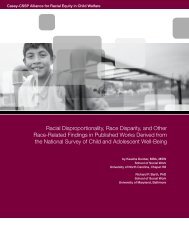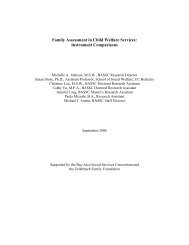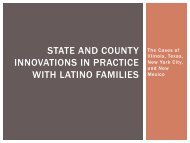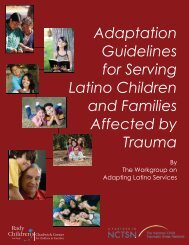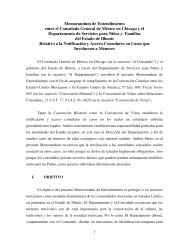Developing a Self-Assessment Toolfor Culturally - Office of Minority ...
Developing a Self-Assessment Toolfor Culturally - Office of Minority ...
Developing a Self-Assessment Toolfor Culturally - Office of Minority ...
Create successful ePaper yourself
Turn your PDF publications into a flip-book with our unique Google optimized e-Paper software.
(cover letter, questionnaire cover sheet with instructions, questionnaire sections A-D), theForm asks respondents to rate certain elements (e.g., layout and design, clarity <strong>of</strong>instructions, clarity <strong>of</strong> question wording and response categories, ability to providerequested information) based on the level <strong>of</strong> appropriateness for presenting eachcomponent to someone in a similar staff position as themselves. An average rating scorewas used to summarize the responses to the 4-point scale (i.e., 1 = very appropriate; 2 =appropriate; 3 = somewhat appropriate; and 4 = not appropriate).Response to the Pilot Test Response Form (see Appendix F) were received from threeclient services personnel and one staffing personnel for average rates <strong>of</strong> 2.0 and 1.6,respectively. Moreover, only one respondent reported responses <strong>of</strong> “not appropriate” inrelation to the Response Form, however, not the actual questionnaire. 1 These resultsdemonstrate that for the pilot participants, the staffing and client services questionnaireswere found to be understandable and appropriate—in both format and content. 2 Again,three questionnaires that represent the final LPHA CLAS self-assessment tool are providedin Appendices C, D, and E.3.2 RECOMMENDATIONS AND CONCLUSIONBased on information learned during the conduct <strong>of</strong> this project, recommendations are<strong>of</strong>fered to LPHAs that plan to use the self-assessment tool to monitor quality <strong>of</strong> services forculturally and linguistically diverse members, and for organizations that plan to conductfuture research in this area.3.2.1 RecommendationsReview findings <strong>of</strong> the CLAS in MCOs study. Results from the CLAS in MCOsstudy (OMH 2003b) could provide LPHAs with specific examples <strong>of</strong> how other health careorganizations are providing CLAS to diverse groups. LPHAs are encouraged to examineorganizational and service operations implemented or utilized in their own health caresettings in relation to the types <strong>of</strong> practices described in the study. Numerous examples areprovided that show how strategies and services that address the health care needs <strong>of</strong> diversegroups are currently implemented or utilized. The study results may provide a resource toLPHAs for identifying: 1) gaps in their own agency’s CLAS-related policies or serviceprovision, or 2) new strategies that expand or strengthen existing services. In addition,1 This respondent noted in the comments section <strong>of</strong> the Pilot Test Response Form that he/she did notunderstand the meaning <strong>of</strong> the category “ability to recall information” as written on the Form—not thequestionnaire.2 Moreover, the MCOs study instruments (on which the LPHA CLAS self-assessment tool is based)were tested and shown to have high validity and reliability (OMH 2003b).COSMOS Corporation, December 2003 3-3



